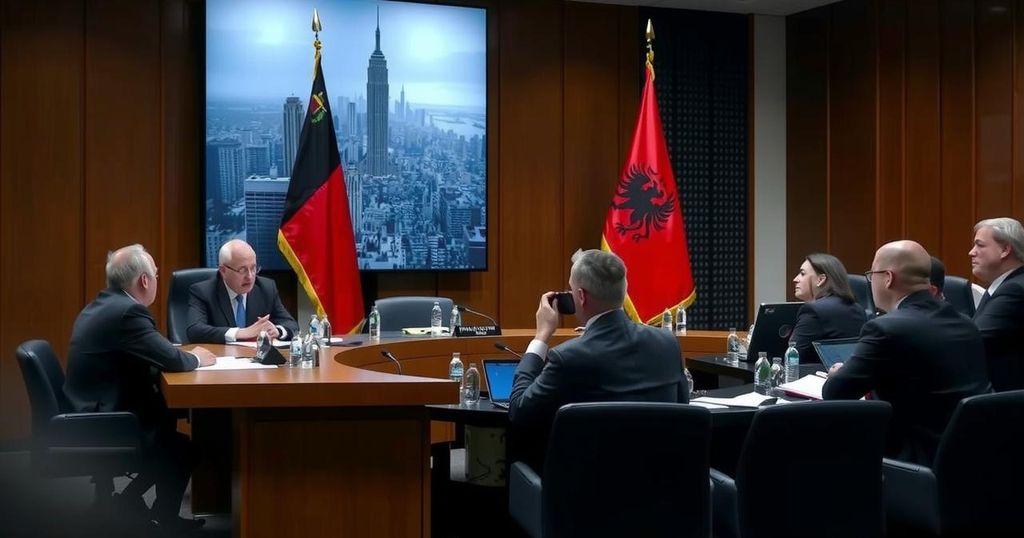Edi Rama, the Prime Minister of Albania, criticized the COP29 summit for its apparent inefficacy in the face of ongoing emissions from major polluters. UN Secretary-General Antonio Guterres supported calls for urgent climate finance commitments, particularly for vulnerable nations. The summit has spotlighted the need for accountability and actionable strategies to combat climate change, amidst calls for enhanced global cooperation and justice.
At the ongoing COP29 summit in Baku, Edi Rama, the Prime Minister of Albania, expressed his disillusionment with the gathering, questioning its effectiveness if the biggest polluters continue business as usual. He observed that while leaders enjoyed comfort, their speeches seemed detached from the pressing reality of rising carbon emissions. Rama reiterated the need for a united political will towards genuine action on climate change, emphasizing the incongruity between lofty speeches and the persistent failure to reduce emissions. Amidst his remarks, UN Secretary-General Antonio Guterres highlighted the increasing carbon emissions since the last conference, stressing the gravity of the situation. Leaders from smaller, climate-vulnerable states have drawn attention to the injustice of their situations, urging wealthier nations to deliver on climate finance commitments and address systemic inequalities in climate financing. The urgent need for a loss and damage fund and stronger commitments from developed nations was underscored by various representatives, including those from small island nations and Pakistan. As the summit progresses, the disparity between emissions targets and actual reductions remains a central concern, provoking calls for immediate and substantial action to avert catastrophic climate impacts. Leaders are being urged not only to address financial backing but also to commit to real, actionable solutions that can ultimately lead to meaningful changes in global climate policy.
The 29th Conference of the Parties (COP29) is centered on climate change negotiations, bringing together global leaders to discuss and formulate strategies to combat the ongoing climate crisis. There is considerable frustration around the effectiveness of previous summits, especially in the face of rising greenhouse gas emissions. This year’s summit has reinvigorated calls for accountability from the largest polluting nations, with increased scrutiny on the commitments made by developed countries to assist vulnerable states financially. The ongoing discussions at COP29 highlight the tensions between rich and poor nations and the uncompromising nature of climate change’s impacts on vulnerable populations, particularly small island nations.
In summary, COP29 has become a vital platform for leaders to confront the inadequacies of past commitments regarding climate action. Edi Rama’s poignant critique of the summit’s efficacy in light of persistent emissions underlines the need for a collective and serious response from nations, particularly the biggest polluters. The success of such negotiations remains contingent on the political will to actualize commitments into tangible actions that address the dire realities of climate change and foster equitable climate finance for those most impacted.
Original Source: www.theguardian.com






